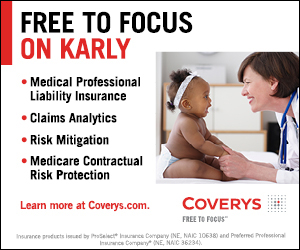Q: I am reading media accounts that the FTC is about to ban all covenants not to compete. When will this happen? Will the covenant not to compete in my employment agreement that I signed two years ago be banned? Will Michigan law that allows covenants not to compete have to be changed also?
On January 5, 2023, the FTC issued a Notice of Proposed Rulemaking (the “Proposed Rule”). The Proposed Rule would ban covenants not to compete in employment agreements. Covenants not to compete obtained in connection with the sale of a business would remain enforceable in accordance with their terms and to the extent allowed by state law. Examples of such covenants not to compete are those contained in a purchase agreement or a standalone document entered into in connection with a purchase agreement.
An FTC summary of the Proposed Rule can be found by clicking on the following link: Non-Compete Clause Rulemaking | Federal Trade Commission (ftc.gov). Specifically, the Proposed Rule declares that it is “an unfair method of competition for an employer to enter into or attempt to enter into a non-compete clause with a worker; maintain with a worker a non-compete clause; or represent to a worker that the worker is subject to a non-compete clause where the employer has no good faith basis to believe that the worker is subject to an enforceable non-compete clause.”
Therefore, the Proposed Rule would ban both the entering into of future covenants not to compete and covenants not to compete contained in existing employment agreements. If the Proposed Rule takes effect, a prospective employer will not be able to include a covenant not to compete in a proposed employment agreement and your current employer would not be able to enforce a covenant not to compete already in place. Language in the FTC’s enabling legislation giving it jurisdiction over entities that carry on business “for profit” makes the applicability of the ban to nonprofits (e.g., hospitals, health systems, clinics, etc.) uncertain. If the ban is determined to not be applicable to nonprofits, physicians employed by a nonprofit will remain subject to their covenants not to compete and those employed by private practices and other for profit entities will be free of their covenants not to compete.
No changes to Michigan law would be needed to put the ban into effect. The Proposed Rule provides that it “shall supersede any State statute, regulation, order, or interpretation to the extent that such statute, regulation, order, or interpretation is inconsistent with” the Proposed Rule’s ban of covenants not to compete in employment agreements. If a state has a law in place that already bans covenants not to compete, that state law would remain in force to the extent it provides greater protection to the employee than the Proposed Rule.
The Proposed Rule was issued subject to a 60-day public comment period beginning when it is published in the Federal Register. Following the expiration of this public comment period, the FTC has indicated its intention to quickly finalize the rule. The ban would take effect 180 days after the FTC publishes the final rule. However, the ban will face significant challenges in the courts1 that will very likely delay when the ban becomes effective. The expected legal battle will likely take years.
It is important to note that the stated reasons for the Proposed Rule are not unique to physicians or other providers of healthcare services. Instead, the FTC is attempting to ban covenants not to compete in employment generally, stating in part that “the freedom to change jobs is core to economic liberty and to a competitive, thriving economy. Non-competes block workers from freely switching jobs, depriving them of higher wages and better working conditions, and depriving businesses of a talent pool that they need to build and expand.”
The fact that a covenant not to compete is included in nearly every physician employment agreement, its enforcement likely prevents patient choice of a healthcare provider, and the disruption to the continuity of patient care are some of the noneconomic factors making the need for the ban unique to the healthcare industry.
Resource
Among the challenges will be whether the Proposed Rule would apply to nonprofit entities. Some commentators are suggesting that the wording of the Proposed Rule means it does not apply to nonprofits (however the Proposed Rule does not expressly include this as an exception). Others are saying that the FTC does not have authority to regulate nonprofit entities. If it turns out that the ban on covenants not to compete does not apply to nonprofits, nonprofit hospitals would be able to maintain and continue to enforce their covenant not to compete agreements with physicians and for profit medical practices and other for profit entities will not.
Daniel J. Schulte, JD, MSMS Legal Counsel is a member and managing partner of kerr russell.












